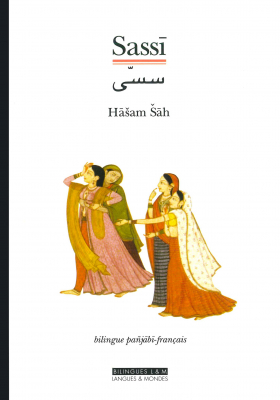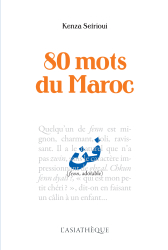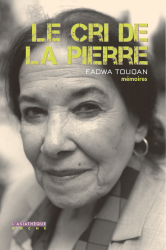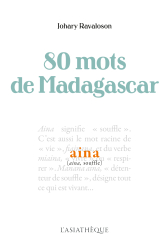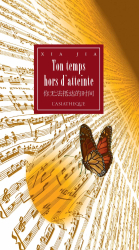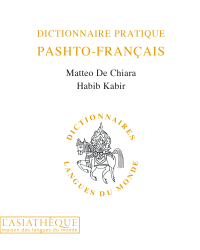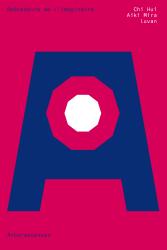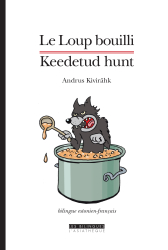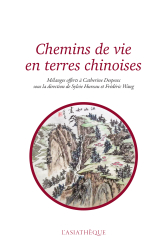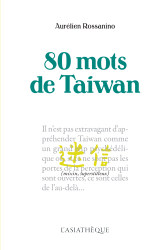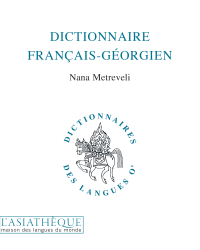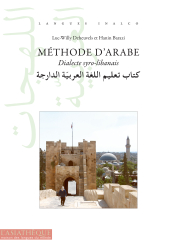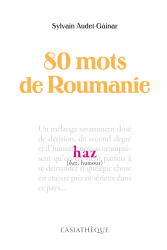A tragically ending mad love story, this text written at the end of the 18th century is Hasam Sah's masterpiece.
This book is a tragic tale of all-consuming love : Sassi is abandoned by her father, the Rajah of Bhambor, and welcomed into the home of two laundry women. She falls passionately in love with Punnu, the Prince of Ketch, who, in return, also falls in love with Sassi. However, his brothers tricks him into returning to Ketch. Sassi dies while wandering in the desert in search of her love. Punnu finds her grave and dies of grief on her tomb. Written at the end of the eighteenth century, this is the masterpiece of Hasam Sah. Denis Matringe sets the story in its epoch and in the Punjabi cultural tradition. The Punjabi text is written in Arabo-Persian script.
CONTRIBUTORS' BIOGRAPHIES
Denis Matringe
Born in 1953, researcher at the CNRS, Denis Matringe is director of the Center for Indian and South Asian Studies (CEIAS - EHESS) and provides seminars at the School of Advanced Studies in Social Sciences (EHESS) : Cultures of Indian Islam until 1947.
TABLE OF CONTENTS
Transcription et prononciation du paiijâbi (Transcription and prononciation of the paiijâbi)
Cartes géographiques (Geographic maps)
Sassi et Punnû, miniature de l'école Kangra (Sassi and Punnû, miniature of the Kangra school)
INTRODUCTION (INTRODUCTION)
La culture populaire du Pañjāb (Folk culture of the Punjab)
Le panjābī (The Punjab)
Sassī Hāsam et l'histoire de la littérature musulmane en pañjābī (Sassī Hāsam and the history of Muslim literature in Punjabi)
Hāsam Sāh (Hāsam Sāh)
Sassī Hāsam (Sassī Hāsam)
Sassī Hāsam et Hir Vāris Sāh (Sassī Hāsam and Hir Vāris Sāh)
L’univers de Sassī Hāsam (The world of Sassī Hāsam)
Ecriture de la quête, vie d'un texte, usages d'une fable (Writing of the quest, life of a text, uses of a fable)
NOTE CONCERNANT LE TEXTE ET LA TRADUCTION (NOTE ON THE TEXT AND TRANSLATION)
Le lai de Sassī (The Lai of Sassī)
Prologue (Prologue)
La naissance de Sassī (The birth of Sassī)
La prédiction des astrologues (The prediction of astrologers)
Sassī est confiée à la rivière (Sassī is entrusted to the river)
Sassī est recueillie par Attā le blanchisseur (Sassī is taken in by Attā the launderer)
Sassī refuse un mariage arrangé (Sassī refuses an arranged marriage)
Sassī s'éprend du portrait de Punnũ (Sassī falls in love with Punnũ's portrait)
Le plan de Sassī pour attirer Punnũ (Sassī's plan to attract Punnũ)
Les Balue sont pris en otages (The Balue are taken hostage)
Le récit des Balūč et le refus des parents de Punnũ (The story of the Balūč and the refusal of Punnũ's parents)
Punnũ s'éprend de Sassī et part pour la rejoindre (Punnũ falls in love with Sassī and leaves to join her)
Punnũ et son escorte arrivent à Bhambor (Punnũ and his escort arrive at Bhambor)
Les jardiniers racontent à Sassī le saccage de son jardin (Gardeners tell Sassī about the ransacking of her garden)
Sassī se rend au jardin et rencontre Punnũ (Sassī goes to the garden and meets with Punnũ)
Les Balūč rentrent à Keč sans Punnū (The Balūč return to Keč without Punnū)
Les frères de Punnū se rendent à Bhambor (Punnū's brothers go to Bhambor)
Ses frères enivrent Punnū pour l'emmener avec eux (His brothers intoxicated Punnū to take him with them)
Le désespoir de Sassī (The despair of Sassī)
La mère de Sassī essaie de la raisonner (Sassī's mother tries to reason her)
Sassī part pour le désert (Sassī leaves for the desert)
Sassī découvre l'empreinte d'un chameau (Sassī discovers a camel's footprint)
Un berger aperçoit Sassī (A shepherd sees Sassī)
La mort de Sassī (The death of Sassī)
Alerté par un songe, Punnū part pour rejoindre Sassī (Alerted by a dream, Punnū leaves to join Sassī)
Punnū meurt sur la tombe de Sassī (Punnū dies at Sassī's grave)
Notes relatives au lai (Notes on the Lai)
APPENDICE (APPENDIX)
Mīrzā Ṣāḥibā dans la version de Ḥāfiẓ Barxurdār (Mīrzā Ṣāḥibā in Ḥāfiẓ Barxurdār's version)
Hīr Rājhā dans la version de Vāriṣ Šāh (Hīr Rājhā in Vāriṣ Šāh's version)
Sohṇī Mahīvāl dans la version de Faẓl Šāh (Sohṇī Mahīvāl in Faẓl Šāh's version)
Pūran Bhagat dans la version de Qādir Yār (Pūran Bhagat in Qādir Yār's version)
Saif al-Mulūk dans la vesion de Mīā Muḥammad Baxš (Saif al-Mulūk in Mīā Muḥammad Baxš's version)
